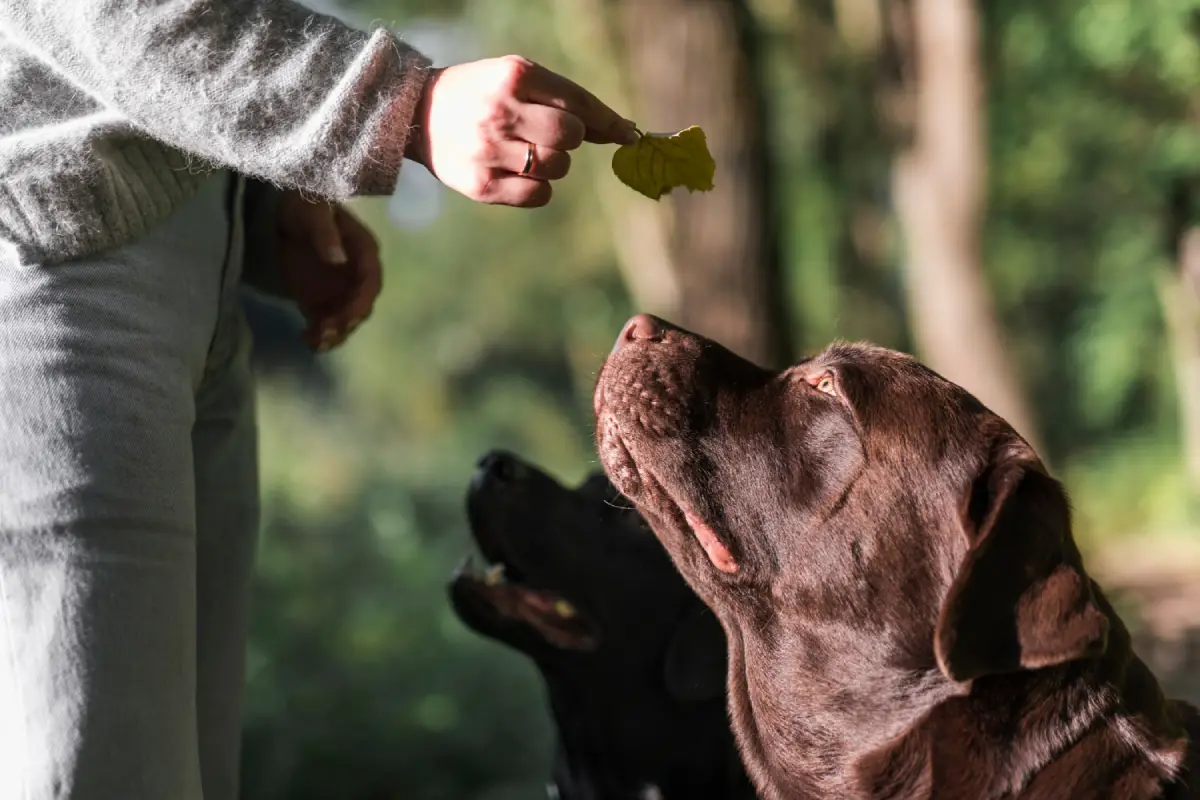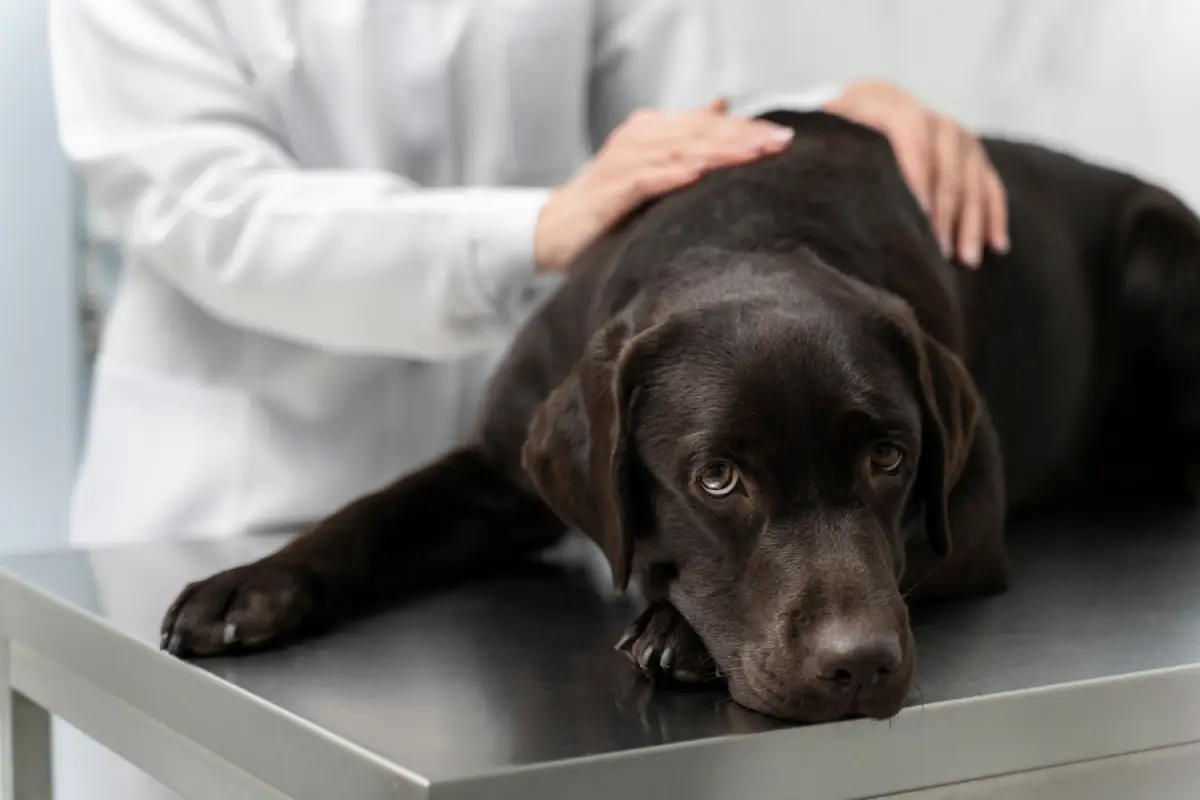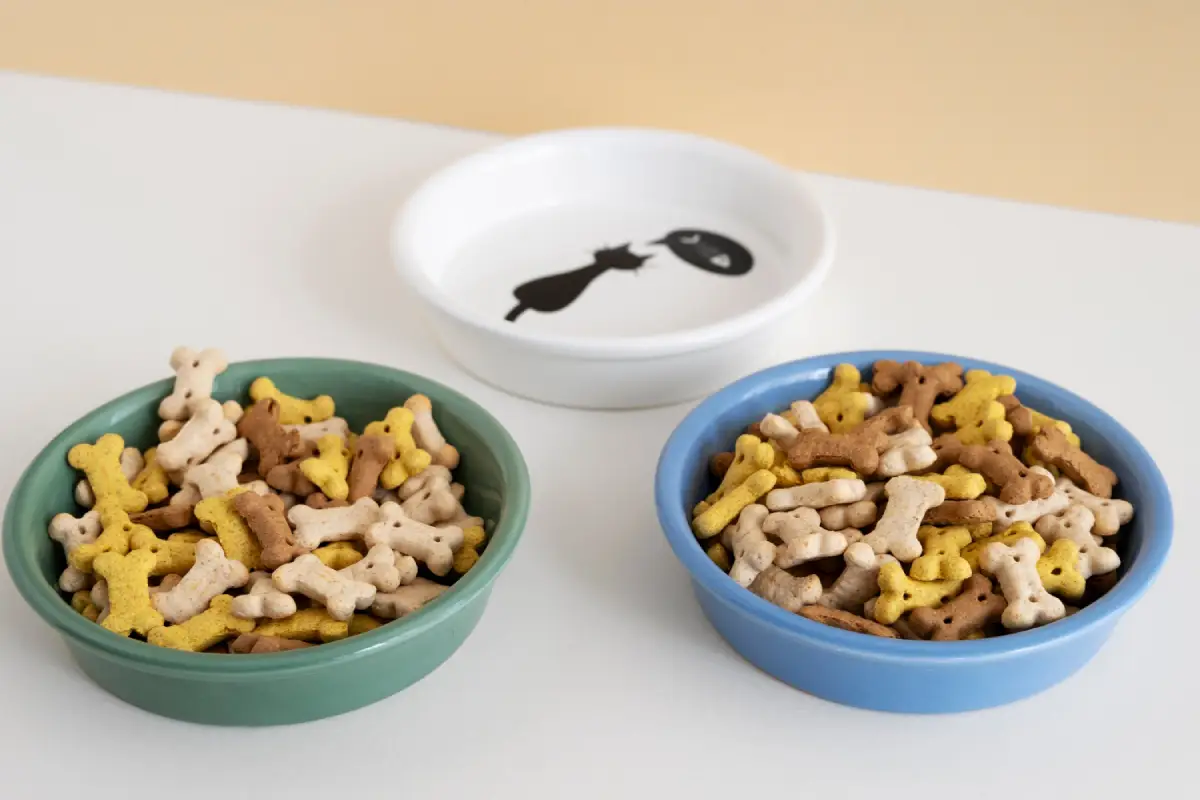Welcome, dog lovers and curious readers! Are you wondering, “Can dogs eat black olives?” You’ve landed in the perfect spot. As devoted pet owners, we often find ourselves navigating the complex dietary needs of our furry friends. Understanding their diet is key to providing the best care. This article sheds light on this specific query, offering insights that are both informative and practical.
Building on our detailed exploration of black olives (check out our parent article for more), we now focus on these savory delights in the context of a dog’s diet. Black olives are a popular choice in human diets, known for their rich flavor and health benefits. But, are they a safe option for dogs? What are the benefits or risks? How do black olives affect a dog’s digestion?
In this guide, we will delve into the nutritional aspects of black olives, their impact on canine health, and the right way to add them to your dog’s diet. Whether you’re an experienced dog owner or new to canine nutrition, this guide aims to answer all your questions and equip you with the knowledge to make wise dietary choices for your dog. So, let’s get started and uncover everything about dogs and black olives.
Nutritional Analysis of Black Olives
Healthy Fats in Black Olives
Black olives are a noteworthy source of healthy fats, predominantly monounsaturated fats. These fats play a crucial role in maintaining a dog’s skin and coat health. A moderate intake of these fats can be beneficial, but it’s vital to remember that dogs’ nutritional needs differ from humans’, and an excess can lead to digestive issues.
Fiber Content and Digestive Health
Olives also provide dietary fiber, which can aid in a dog’s digestion. However, similar to fats, an excessive amount of fiber can cause digestive upset in dogs. It’s essential to balance the fiber content in your dog’s diet for optimal health.
Vitamins and Minerals
Vitamin E, found in black olives, supports a dog’s immune system and skin health. These olives also contain minerals like calcium and iron. While these are beneficial, the quantities present in black olives are not substantial enough to significantly impact a dog’s dietary needs.
Sodium Content: A Point of Concern
A major concern with black olives is their high sodium content, particularly those preserved in brine. High sodium intake in dogs can lead to dehydration and other health complications. When considering black olives for your dog, opting for low-sodium varieties and limiting the quantity is imperative.
In summary, black olives can offer some nutritional benefits to dogs but should be given sparingly and carefully, ensuring they are plain and low in sodium. Moderation is key in incorporating black olives into a dog’s diet.
Health Benefits and Risks for Dogs
Black Olives and Their Health Benefits for Dogs
In moderation, black olives can offer health benefits to dogs. These olives contain healthy fats beneficial for a dog’s coat, promoting shine and health. Vitamin E in black olives boosts their immune system and supports skin health. The fiber content, while beneficial for digestion, requires careful monitoring to prevent digestive issues.
Understanding the Risks of Black Olives
Feeding black olives to dogs also carries risks. The high sodium content is the main concern, as it can cause serious health problems like dehydration and electrolyte imbalances in dogs. Additionally, olives with additives and seasonings can harm dogs. It’s essential to choose plain, unsalted black olives to mitigate these risks.
Choking hazards from olive pits also require attention. Pitted black olives are safer, and introducing olives into a dog’s diet should happen gradually to watch for allergies or digestive reactions.
How to Safely Offer Black Olives to Dogs
To include black olives in your dog’s diet safely, moderation is the key. Small amounts as an occasional treat usually pose no harm. Always pick low-sodium, plain black olives and ensure they are pitted. Consulting your veterinarian before introducing new foods into your dog’s diet is wise, especially for dogs with existing health conditions.
In summary, while black olives can be a beneficial treat for dogs in limited amounts, awareness of the potential risks and cautious introduction into the diet is important.
Safe Feeding Practices
Introducing Black Olives to Your Dog’s Diet
When introducing black olives to your dog’s diet, start with small amounts. This gradual approach helps you monitor your dog’s reaction to the new food. Look out for any signs of digestive upset or allergic reactions. If your dog shows any negative symptoms, it’s best to discontinue feeding them black olives and consult your veterinarian.
Recommended Quantities and Frequency
Regarding quantity, a few black olives can serve as an occasional treat. Due to their high fat and sodium content, it’s not advisable to make black olives a regular part of your dog’s diet. Limiting black olive treats to a few times a month is a safe approach.
Choosing the Right Type of Olives
Always opt for plain, unsalted black olives. Olives preserved in brine or those containing additional seasonings and spices can be harmful to dogs. Additionally, make sure the olives are pitted to avoid any risk of choking or intestinal blockage.
Monitoring Your Dog’s Overall Diet
While incorporating treats like black olives, it’s crucial to maintain a balanced diet for your dog. Their regular diet should primarily consist of high-quality dog food formulated to meet their nutritional needs. Treats, including black olives, should only make up a small portion of their overall diet.
In summary, safe feeding practices are essential when giving black olives to your dog. Start with small amounts, choose the right type of olives, and always keep an eye on their overall diet and health. Moderation and careful selection are key to ensuring that this treat remains a safe and enjoyable part of your dog’s diet.
Understanding a Dog’s Digestive System
Basic Functioning of Canine Digestion
To comprehend why certain foods like black olives affect dogs differently, it’s important to have a basic understanding of a dog’s digestive system. Dogs have a shorter gastrointestinal tract compared to humans, which means they digest food at a faster rate. This difference in digestion plays a significant role in what foods are suitable for dogs and how they metabolize nutrients.
Why Some Foods Are Better or Worse for Dogs
The canine digestive system is primarily designed to process meat and high-protein diets. Dogs do have the ability to digest certain plant-based foods, but their system is not as equipped for breaking down high-fiber or heavily processed foods. This limitation is why some human foods, like black olives, can be challenging for dogs to digest in large quantities.
Impact of Fat and Sodium on Dogs
Foods high in fat, like black olives, can cause issues such as pancreatitis in dogs if consumed in excess. Similarly, high sodium levels found in some olives can lead to dehydration and salt toxicity. Understanding these dietary sensitivities is crucial when introducing new foods into a dog’s diet.
Tailoring Diet to Individual Dogs
Each dog is unique, and their dietary needs can vary based on factors like age, breed, and health conditions. Some dogs may handle certain foods better than others. It’s always a good idea to monitor how your dog reacts to new foods and consult with a veterinarian for personalized dietary advice.
In conclusion, understanding the specifics of a dog’s digestive system helps in making informed decisions about their diet. It’s important to consider these factors when introducing foods like black olives to ensure they are both safe and beneficial for your pet.
Comparing Snack Options
Black Olives vs. Other Dog-Friendly Snacks
When it comes to treating our furry friends, the question “Can dogs eat black olives?” opens up the discussion to compare them with other dog-friendly snacks. Black olives can be an occasional treat, but it’s important to consider a variety of snacks to maintain a balanced diet for your dog.
Nutritional Value and Safety Considerations
Understanding the nutritional value and safety of various snacks is key. Black olives provide healthy fats and some vitamins, but their high sodium content and potential for additives make them less ideal compared to other options. On the other hand, many fruits and vegetables offer vitamins, fiber, and hydration with minimal risks.
Choosing the Right Treats for Your Dog
The best treat for your dog depends on their individual health, dietary needs, and preferences. Some dogs may have specific allergies or sensitivities that make certain snacks unsuitable. It’s always a good idea to introduce new treats gradually and observe your dog’s reaction.
Keeping Treats Balanced and Moderate
Regardless of the type of snack, moderation is crucial. Treats should never make up more than 10% of a dog’s daily caloric intake. Maintaining a balanced diet with high-quality dog food as the primary source of nutrition is essential for your dog’s overall health.
In summary, while black olives can be a safe occasional treat, there are many other snack options that might be more suitable for regular feeding. Assessing the nutritional value and safety of each option, considering your dog’s specific needs, and keeping treats moderate are important steps in ensuring a healthy diet for your pet.
Veterinary Advice
Expert Opinions on Feeding Black Olives to Dogs
Veterinarians often provide crucial insights when it comes to the diets of dogs. Regarding black olives, most vets agree that they can be an acceptable treat when given in moderation and in the right form (plain and pitted). However, they also emphasize the importance of understanding a dog’s individual dietary needs and health conditions.
Consulting a Vet for Diet Changes
Before introducing new foods like black olives to your dog’s diet, it’s advisable to consult with your veterinarian. This is particularly important for dogs with pre-existing health conditions, such as diabetes or heart issues, where dietary changes could have significant impacts.
Vets’ Tips on Safe Olive Consumption
Veterinarians typically recommend offering black olives in small quantities as an occasional treat. They also advise against feeding dogs olives that are preserved in brine or contain added spices, as these can be harmful. Additionally, monitoring your dog for any adverse reactions after consuming olives is crucial.
The Role of Vets in Monitoring Your Dog’s Health
Regular veterinary check-ups can help monitor your dog’s overall health and nutrition. Your vet can provide personalized advice based on your dog’s specific needs and help you make informed decisions about incorporating various foods into their diet.
In conclusion, seeking veterinary advice is a vital step in ensuring the safe inclusion of black olives in your dog’s diet. Vets can provide tailored guidance and help you understand the best dietary practices for your pet’s health and wellbeing.
Frequently Asked Questions (FAQs)
Are Black Olives Safe for Dogs to Eat?
Yes, black olives are generally safe for dogs to eat in moderation. They should be plain, pitted, and preferably low in sodium. It’s important to introduce them slowly into your dog’s diet and monitor for any adverse reactions.
Are Olive Trees Toxic for Dogs?
Olive trees themselves are not toxic to dogs. However, the pits, leaves, and stems of the tree can pose a choking hazard or cause intestinal blockage if ingested. Always ensure your dog only consumes the flesh of the olive.
What Foods Are Toxic to Dogs?
Certain foods are toxic to dogs and should always be avoided. These include chocolate, grapes, raisins, onions, garlic, xylitol (a sweetener found in many sugar-free products), and alcohol. Always check the safety of any human food before offering it to your dog.
Can Dogs Eat Olives in Brine?
It’s best to avoid giving dogs olives that are preserved in brine. The high sodium content in brined olives can be harmful to dogs, leading to dehydration and other health issues. If you choose to feed your dog olives, opt for plain, low-sodium varieties.
Can dogs eat black olives Conclusion
In exploring the question, “Can dogs eat black olives?” we’ve navigated through various aspects of canine nutrition and health. Black olives can be a safe and occasionally beneficial treat for dogs, provided they are given in moderation, plain, and pitted. However, due to their high sodium content and potential for additives, they should never be a staple in a dog’s diet.
From understanding the nutritional content of black olives to considering their impact on a dog’s health, it’s clear that responsible pet ownership involves informed decisions about diet. Consulting with veterinarians, paying attention to each dog’s unique dietary needs, and staying updated with the latest research are key to ensuring the wellbeing of our canine companions.
As dog lovers, our goal is always to provide the best for our pets. While black olives can be part of this equation, they are just one small piece of a much larger nutritional puzzle. We hope this guide has been informative and helpful in making decisions about including black olives in your dog’s diet. Remember, every dog is different, and what works for one may not work for another. Observing your dog and adapting to their needs is the best approach to ensuring a happy, healthy life for your furry friend.






